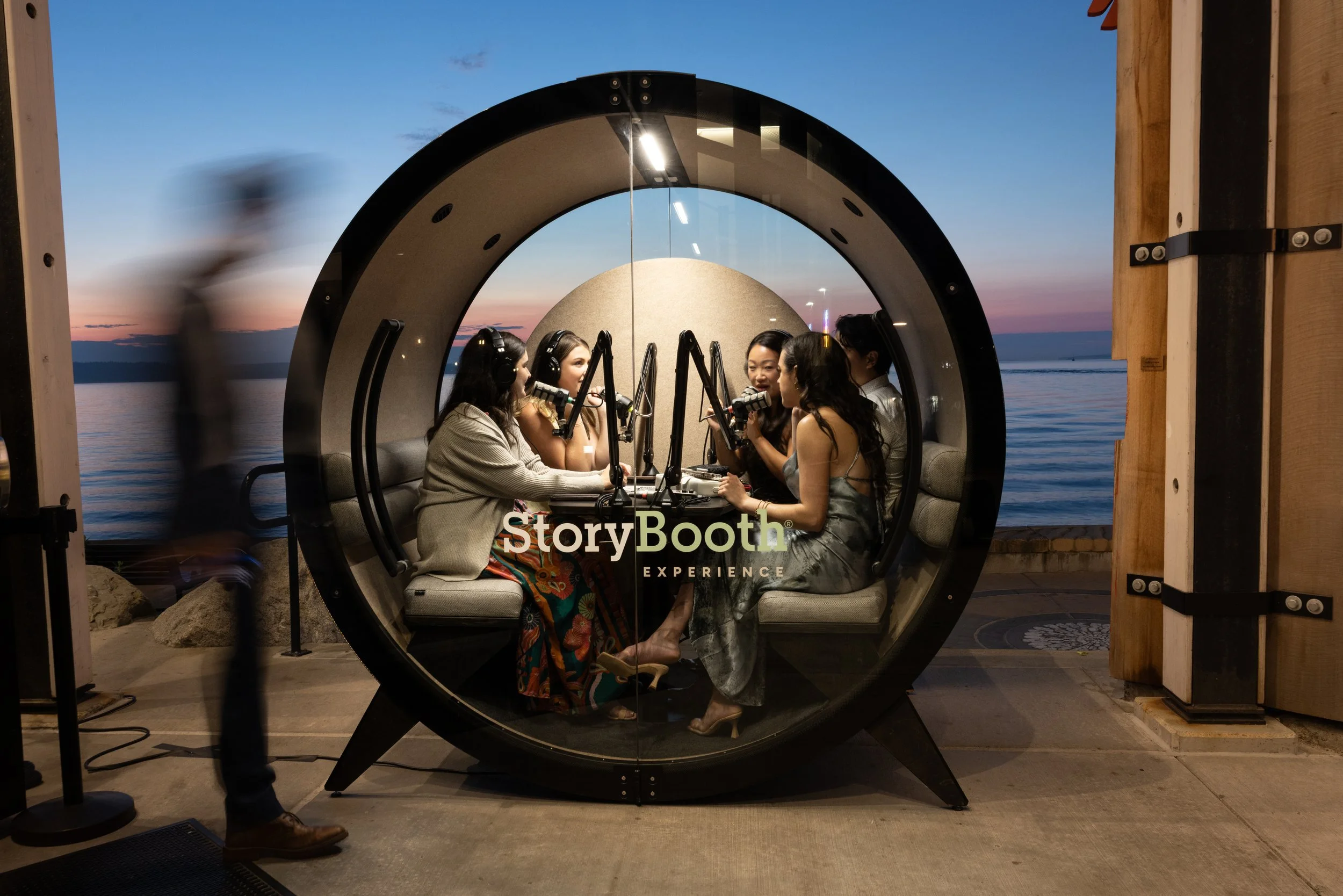Isaac Lee on What to Know About Narrative Podcasts.
An interview with the award winning LA based producer Isaac Lee. This interview has been edited for clarity.
You’ve produced a lot of big podcasts over the years. Tell us a little bit about how you got into the industry.
I used to work in the music industry and have always been fascinated by audio. I was fortunate to find podcasting pretty early in my career. I was an original producer for the Ringer which was later acquired by Spotify. My first ever show “Binge Mode” was named the number one podcast of the year by Time Magazine.
You were a central figure in the first narrative podcast from the Ringer called “Boom / Bust, the Rise and Fall of HQ. Tell us about that.
I originally signed on just as the producer / engineer. Meaning I was only going to handle the technical audio components of making the show. But I quickly started to wear a few different hats. I became more of a story producer. I was shaping the story, providing editorial guidance. I composed all original music for the show as well. I did this in lieu of licensing music from existing libraries. In hindsight, me wearing all these hats for pretty intense and ambitious..
What was the original goal of making Boom Bust?
The goal was to tell the story of the HQ Trivia company, how it started, how it grew, how it fell apart. We thought there was a really salacious story that would make for great audio. In reflection that was actually a lot harder than it appeared to be.
What became the issues that made the show challenging to produce?
A few things:
One, We arbitrarily agreed to an 8 episode order. I think this had to do with other editorial strategy, for advertising sales. But I remember when we completed our reporting I told another producer that I was concerned we didn't have enough material to make it an 8 episode series.
Second, COVID hit, which changed everyone’s availability. Having consistent availability for your talent to record is key, there are lots of times when you’d like to get your talent back on mic to redo something and it can be very difficult.
What would you say to a person or a brand who’s considering creating a narrative based podcast?
I would say they need to think really hard about a few things:
First, does it actually make sense for audio? Is audio the most natural way to tell the story? I like the concept of “audiating”. i.e can you hear the story in your head?
Second, you need to think about if there’s intense visual or informatic elements that the listener would need to get in order to understand. Can you tell this story and not show it? Then it might be a good fit for a podcast.
Third, You also need to about the pacing of the story. Like I said earlier, it’s important to think in terms of beats. What’s episode 1 about? How does it lead to episode 2? Also, like I said earlier, sometimes stories can feel more salacious on the surface than they actually are in real life. I think it’s important to have a list of criteria about what is or isn’t enough drama for a given story.
What are your final takeaways about the show?
Two things.
One, I loved working on Boom Bust and that show launched a whole slew of shows for us, including the Cam Chronicles and the Len Bias Story. The show did really really well and it was a real learning experience for me and it’s something that I’m really proud of.
Two, like I said earlier, I wore multiple hats in the show. I was an editorial producer, an audio engineer and a sound composer.
I think it’s important to be able to define reasonable expectations, timelines and try to hire as many qualified people as reasonably possible in order to distribute the workload and get a better product.
3 Pieces of GUM:
Multifaceted Production Roles: In podcasts there are challenges of juggling multiple production roles. from technical audio work to story shaping and music composition podcasts have lots of different roles that need to be attended to.
Preparation and Material Sufficiency: Consider the importance of having enough compelling content before committing to a set number of episodes, be wary of overestimating material during planning.
Audio Suitability Assessment: Before starting a narrative podcast, creators should ensure their story translates well into audio, is visually independent, and can maintain a strong narrative pace across episodes.


